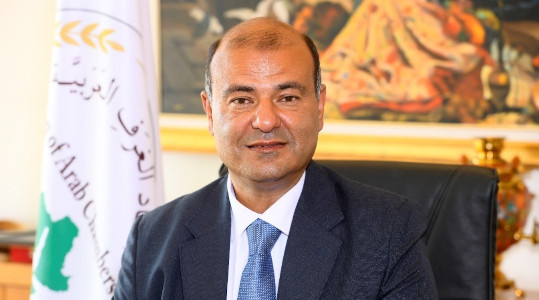Dr. Khaled Hanafy, Secretary-General of the Union of Arab Chambers, emphasized in a statement at the 28th St. Petersburg International Economic Forum (SPIEF 2025), which is being held under the patronage and attendance of Russian President Vladimir Putin from June 18 to 21, 2025, in St. Petersburg, Russia. A prominent number of world leaders and ministers from the Russian Federation, as well as foreign and Arab countries, are in attendance, in addition to a wide range of businessmen and investors. He emphasized that "the forum, held amid geopolitical turmoil and global economic turmoil resulting from the trade war, remains a crucial platform for business, political, and expert communities. This is evident in the steady increase in the number of participants and topics under discussion."
He noted that "the St. Petersburg International Economic Forum is a major global event that addresses the current economic challenges facing Russia, emerging markets, and the world, with a clear focus on identifying problems and developing practical solutions, by working to implement innovative projects and launching a new approach to adapting to the changing global economy."
Dr. Khaled Hanafy noted that "Russia's trade with the Arab world has witnessed remarkable growth, with trade volume between Russia and the United Arab Emirates increasing by 68 percent to $9 billion in 2022. Trade volume between Russia and Saudi Arabia reached $3.7 billion in 2023, up from $1 billion in 2018. Russia's main exports to the Arab world are refined petroleum, wheat, barley, fertilizers, metals, weapons, and machinery. The main Arab exports to Russia are raw plastic sheets, aluminum cans, and construction vehicles, but these quantities are significantly lower than Russian exports to the region."
He noted that "after the Russian economy contracted in 2022 due to international sanctions and the war in Ukraine, it showed signs of recovery in 2024, with a growth rate estimated at 3.6 percent. The inflation rate, which peaked at 13.8 percent in 2022, declined to 7.9 percent in 2024, reflecting the Central Bank's efforts to stabilize prices. In the labor market, unemployment rates declined to an estimated 2.6 percent in 2024, indicating a competitive labor market. Although the value of the Russian ruble declined significantly, with the exchange rate falling to 110 rubles to the US dollar by the end of 2024, Russia's foreign exchange reserves rose to $606.7 billion in 2024, strengthening the country's financial stability." He noted that "the Russian Direct Investment Fund (RDIF) is a major source of Gulf investment in Russia, particularly in infrastructure and technology. Russia launched a pilot program for Islamic finance in 2023 to attract capital from the Middle East." He considered that "OPEC+ cooperation, led by Russia and Saudi Arabia, was crucial to stabilizing the global oil market, especially after Western sanctions imposed on Russia in 2022. While Russia's importance has increased in economic diversification strategies with Arab countries, Arab investment is vital to Russia's sanctions-hit economy. Energy, agriculture, and logistics are the main pillars, but new areas such as technology and finance have been developing significantly recently. Meanwhile, political consensus is deepening, with Saudi Arabia joining the BRICS group, and Russia establishing itself as a key strategic external partner for Arab countries."
Source (Union of Arab Chambers)

